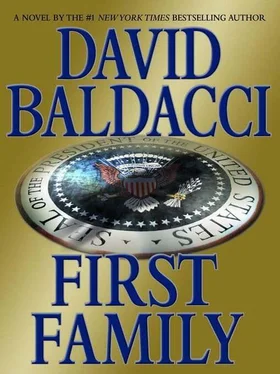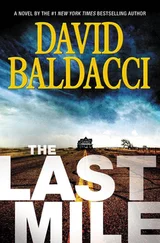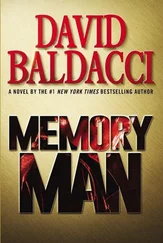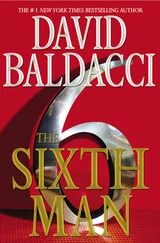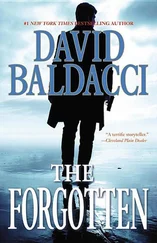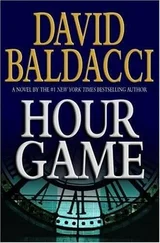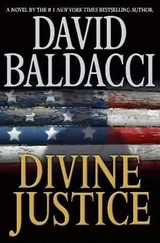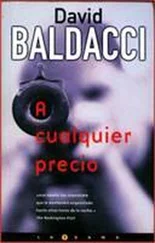David Baldacci - First Family
Здесь есть возможность читать онлайн «David Baldacci - First Family» весь текст электронной книги совершенно бесплатно (целиком полную версию без сокращений). В некоторых случаях можно слушать аудио, скачать через торрент в формате fb2 и присутствует краткое содержание. Жанр: Триллер, на английском языке. Описание произведения, (предисловие) а так же отзывы посетителей доступны на портале библиотеки ЛибКат.
- Название:First Family
- Автор:
- Жанр:
- Год:неизвестен
- ISBN:нет данных
- Рейтинг книги:4 / 5. Голосов: 1
-
Избранное:Добавить в избранное
- Отзывы:
-
Ваша оценка:
- 80
- 1
- 2
- 3
- 4
- 5
First Family: краткое содержание, описание и аннотация
Предлагаем к чтению аннотацию, описание, краткое содержание или предисловие (зависит от того, что написал сам автор книги «First Family»). Если вы не нашли необходимую информацию о книге — напишите в комментариях, мы постараемся отыскать её.
First Family — читать онлайн бесплатно полную книгу (весь текст) целиком
Ниже представлен текст книги, разбитый по страницам. Система сохранения места последней прочитанной страницы, позволяет с удобством читать онлайн бесплатно книгу «First Family», без необходимости каждый раз заново искать на чём Вы остановились. Поставьте закладку, и сможете в любой момент перейти на страницу, на которой закончили чтение.
Интервал:
Закладка:
"Okay, but what can we do? The police and the FBI are involved. I don't see much room for us to operate."
"Never stopped you before," she said stubbornly.
"This is different."
"Why's that?"
He didn't say anything.
"Sean?"
"I heard you!"
"So what's different?"
"What's different are the people involved."
"Who? The Duttons?"
"No. The First Lady."
"Why? What does she matter?"
"She matters, Michelle. She just matters."
"You sound like you know her."
"I do."
"How?"
He started walking off.
"What about Triple A?" she called after him.
Michelle didn't get an answer.
CHAPTER 5
SAM QUARRY loved his home, or what was left of it. The Atlee Plantation had been in his family for nearly two hundred years. The property's footprint had once extended for miles with hundreds of slaves working it. It now had been reduced to two hundred acres with migrant laborers from Mexico doing the bulk of the harvesting. The plantation house itself had seen better days, but it was still sprawling, it was still livable, if one didn't mind the leaky roof, the drafty walls, or the occasional mouse scurrying across the brittle wooden floors. These were surfaces that had encountered the booted steps of Confederate generals and even Jefferson Davis himself on a brief stopover during the losing effort. Quarry knew the history well, but had never reveled in it. You didn't pick your family or your family history.
He was now sixty-two years old with a cap of thick snowy hair that seemed even whiter because of his sun-beaten skin. Long-boned and strongly built with a big, commanding voice, he was an outdoorsman both by choice and necessity. He made his living off the land but also enjoyed the rustic trappings of the hunter, fisherman, and amateur horticulturist. It was just who he was; a man of the earth, he liked to say.
He sat behind his cluttered and scarred desk in the library. It was at this same desk that generations of Quarry men had perched their behinds and made important decisions that affected the lives of others. Unlike some of his ancestors who'd been a bit freewheeling in their oversight, Sam Quarry undertook this responsibility seriously. He ran a tight ship as much to provide for himself as for the people he still employed here. Yet in truth, it was more than that. Atlee was really all he had left now.
He stretched out his six-foot-four-inch frame and settled wide, callused, and sun-reddened hands over his flat stomach. Gazing around at the bad portraits and grainy black-and-white photos of his male ancestors hanging along the wall, Quarry took stock of his situation. He was a man who always allowed the time to think things through. Almost nobody did that anymore, from the president of the United States to Wall Street barons to the man or woman on the street. Speed. Everybody wanted it yesterday. And because of that impatience the answer they got usually turned out to be wrong.
Thirty minutes went by and he didn't move. However, his brain was far more active than his body.
He finally hunched forward, slid gloves on, and under the watchful eye of the portrait of his grandfather and namesake Samuel W. Quarry, who'd helped lead the opposition to civil rights in Alabama, he started tapping the faded keys on his old IBM Selectric. He knew how to use a computer but had never owned one, though he did have a cell phone. People could steal things right off your computer, he knew, even while they were sitting in another country. When he wanted to use a computer he traveled to the local library. To get his thoughts from his Selectric, though, they would have to invade his domain at Atlee and he seriously doubted they would walk out alive.
He finished his two-fingered pecking and pulled out the paper. He read over its brief contents once more and then placed it inside an envelope, sealing it not with his saliva but with a bit of water from a glass on his desk. He was not inclined to give folks any way to track him down, from DNA in his spit or otherwise.
He slipped the envelope into his desk drawer and locked it with the turn of a nearly one-hundred-year-old key that still worked just fine. He rose and headed to the door, out to daylight to oversee his little crumbling kingdom. He passed Gabriel, a skinny eleven-year-old black boy whose mother, Ruth Ann, worked for Quarry as his housekeeper. He patted Gabriel on the head and gave him a folded dollar and an old stamp for his collection. Gabriel was a smart boy who had the ability to go on to college and Quarry was determined to help him try. He had not inherited any of the prejudices of his grandfather or those of his father, who'd hailed George Wallace, at least the unrepentant George Wallace, as a great man who "knew how to keep the coloreds in their place."
Sam Quarry believed all humans had strengths and weaknesses and they weren't tied to pigment type. One of his daughters had actually married a man of color and Sam had happily given his daughter away at the wedding. They were divorced now and he hadn't seen either of them in years. He didn't blame the breakup on his former son-in-law's race. The fact was, his youngest daughter was damn tough to live with.
He spent two hours going over his land, riding in a battered and rusted Dodge pickup with over two hundred thousand proud miles on it. He finally pulled to a stop in front of a dented decades-old silver Airstream trailer with a tattered awning attached. Inside the trailer was a tiny bathroom with toilet, a propane cook top, a six-cubic-foot under-the-counter fridge, a hot-water heater, a miniscule bedroom, and an air conditioner. Quarry had gotten the trailer in a barter exchange off a produce wholesaler short of cash one harvest season. He'd run an underground power line to it from a junction box cabled to the big hay barn, so it had electricity.
Under the awning sat three men, all members of the Koasati Indian tribe. Quarry was well versed in the history of Native Americans in Alabama. The Koasatis had inhabited parts of northern Alabama for centuries with the Muskogee, Creek, and Cherokee to the east and the Chickasaw and Choctaw tribes to the west. After the Great Indian Removal during the 1800s most Native Americans were expelled from Alabama and forcibly moved to reservations in Oklahoma and Texas. Nearly all who spoke the Koasati language now lived in Louisiana, but some had managed to return to the Yellowhammer state.
One of the Koasatis had come here years ago, long after Quarry had inherited Atlee from his father, and he'd been here ever since. Quarry had even given him the little trailer as his home. The other two had been here for about six months. Quarry wasn't sure if they were going to stay or not. He liked them. And they seemed to tolerate him. As a rule they did not trust white men, but they let him visit and share their company. It was technically his land after all, though the Koasatis had owned it long before there were any Quarrys or any other whites in Alabama.
He sat down on a cinderblock chair with an inch-thick rubber mat over it and shared a beer and some rolled cigarettes, and swapped stories with them. The one whom Quarry had given the trailer to was known as Fred. Fred was older than Quarry by at least a decade or so, small and stooped, with straight white hair and a face right out of a Remington sculpture. He spoke the most of the group, and drank the most too. He was an educated man, but Quarry knew little of his personal background.
Quarry conversed with them in their own language, at least as best he could. His Koasati-speaking skills were limited. They would accommodate him by talking in English, but only with him. He couldn't blame them. The white men had basically crapped all over the only race that could call itself indigenous in America. He kept this sentiment to himself, though, because they didn't like pity. They might kill a man over pity.
Читать дальшеИнтервал:
Закладка:
Похожие книги на «First Family»
Представляем Вашему вниманию похожие книги на «First Family» списком для выбора. Мы отобрали схожую по названию и смыслу литературу в надежде предоставить читателям больше вариантов отыскать новые, интересные, ещё непрочитанные произведения.
Обсуждение, отзывы о книге «First Family» и просто собственные мнения читателей. Оставьте ваши комментарии, напишите, что Вы думаете о произведении, его смысле или главных героях. Укажите что конкретно понравилось, а что нет, и почему Вы так считаете.
